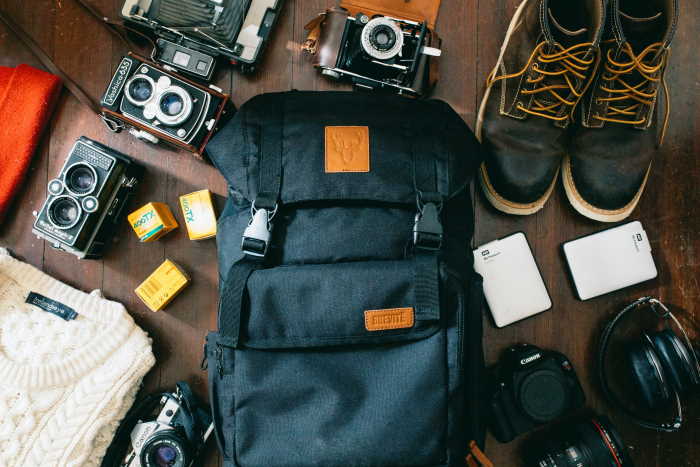Ultralight backpacking is a form of backpacking that uses the lightest of lightweight gear to minimize carrying weight on the trail. An ultralight backpacker will make compromises, such as foregoing a tent and sleeping under the stars or using a hammock, to save weight.
Ultralight hikers use either tarps & bivvy sacks for shelter or hammocks with tarps as protection from wind and precipitation. On average these shelters weigh around 1-2 pound on their own without any other features included.
The idea behind this type of backpacking is to pack only things you truly need, even if they’re heavy-duty – just don’t bring it! Cookware is often made from titanium so it’s not too heavy but also very tough.
How to go ultralight backpacking
Ultralight backpacking follows the concept of using the lightest of lightweight gear to minimize carrying weight, as such it’s best to use a tarp rather than a tent because they are much lighter and take up less space which means you can bring more stuff with you. Tarps also have some advantages over tents like being cheaper and more durable, although they won’t keep away bugs as well as tents will. Follow this guide on how to setup a camping tent in the forest using tarps.
You can also get a hammock instead of a tarp which is even more lightweight, but this means you have to tie it up with heavy ropes which will take up more space in your backpack. This review has some lightweight options available.
These air mattress will be very important if you’re camping with someone because then you can each have your own place to sleep under the tarp or tent, especially if the ground is hard. This way it’s much lighter than sleeping on air mattresses inside of sleeping bags. If you have a lot of people in your group, then you have to have enough air mattresses so that everyone can sleep comfortably.
This is useful if you’re camping for a shorter period of time because it’ll help prevent blisters from forming. Such as the ones that occur from wet feet/soles and standing around too long. I think it’s important to have a waterproof bag because then it’s easier to clean your shoes and other wet items rather than having them clogging up a regular dry bag. This has some very popular bags available today.
Don’t forget to include other things like hiking poles, walking sticks, trekking poles, and bags for your items like your backpack. There are actually many different types of bags for your items. To prevent blisters (on the feet or elsewhere), it’s best to wear some lightweight and breathable socks.
When packing you want to take only the amount of weight you think you’re going to need rather than assuming you’ll need everything so this review has different weights to choose from depending on what you have planned for your trip. You can also get tents that are waterproof, lightweight, and easy to set up. See these selection of lightweight tents below
It’s important to make sure you have enough food for your trip otherwise you might not make it. For ultralight backpacking, it’s best to take dried foods like pasta with sauce or rice because then it’s much lighter weight (and lower cost). If you’re not sure how much food you need for your trip. Everything else doesn’t really matter since you probably already have most of these things at home. Checkout these lightweight cooking apparel below which can be useful on your camping trip.
Another aspect of backpacking is knowing how to identify dangerous animals, insects, and other wild animals/creatures so that you won’t get hurt or killed by them. It’s important because you don’t want to hurt yourself or even risk animal attacks so it’s worth knowing what they are. The first thing to know about dangerous animals is that they will always try to avoid humans so don’t bother looking for one. They’re usually better off running away from you than trying to fight back, so they usually run away if you get too close. If the animal attacks you then it might because it’s either sick or hurt and is trying to protect itself.
If that’s not the case then they will attack you if you’re a threat to them, such as a mother with cubs, a wounded animal protecting itself from a predator, or something protecting its territory. Most of the time there won’t be any issues but sometimes you might encounter one so make sure to watch out for those signs. Usually those things will multiply after being attacked which means there will be more of them in the area now so make sure to look out for those things before going out hiking or camping in remote places.











